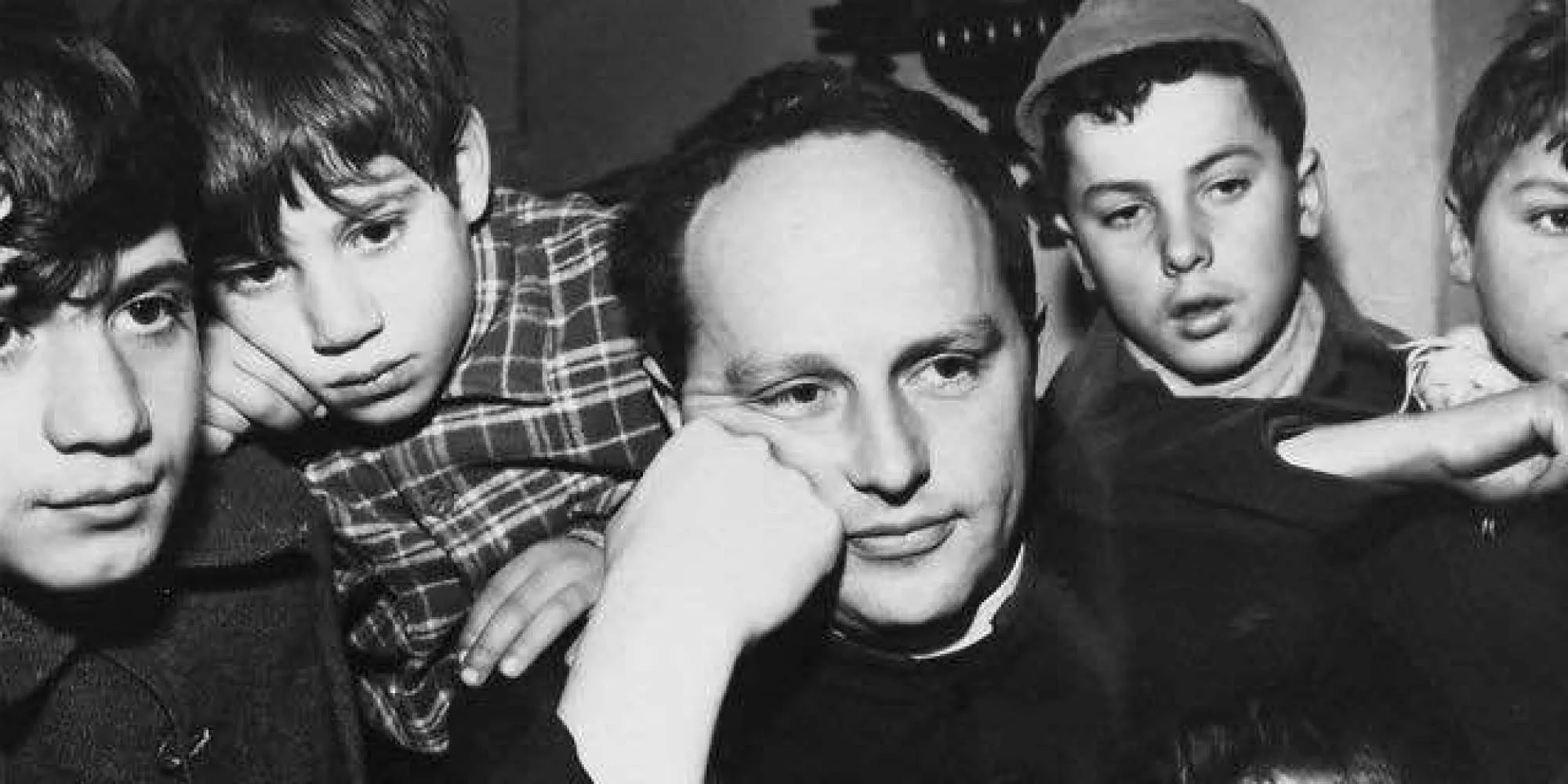Priest, educator, pedagogue, activist, Don Milani dedicated his life to the struggle for equality, justice and civil rights.
Born May 27, 1923, in Florence, Don Milani was a promoter of a school of all, for all, able to give not only a new educational model but also an entire way of conceiving life.
One of his most important projects was certainly the school of Barbiana, which he founded in 1954 in a small hamlet of Florence. Here the prior began working to offer the boys and girls of the area a quality education by putting into practice an innovative and revolutionary teaching method, a laboratory of pedagogical innovation, which deeply influenced Italian and international schools. “Lessons were taught in the meadows and along the rivers, without blackboard, without desks, without first in class and above all without dunces or school failures.” Milani was convinced that school should be a place of inclusion and emancipation, where students could fully develop their abilities and talents.
The school in Barbiana thus became a place where new learning methods based on direct experience and the active participation of students were experimented with. Social and political issues were addressed through theater, literature, philosophy, journalism and even music. Indeed, the Florentine prior recognized the value of music as a means of expression and communication.
Milani’s relationship with music was for many years ignored and even underestimated. One of the first to give it due importance was historian Sergio Tanzarella in his book Il pentagramma di Lorenzo Milani. Music for Freedom,( 2021) also thanks to an accurate study of the Milanese epistolary (1,106 letters, of which 129 unpublished). Thus he opens his volume:
“Precisely in order to get to the point of growing, opening, blossoming and fructifying everything could and should be used: therefore also music but without selfish voluptuousness and sterile aestheticisms.”
To the theoretical and abstract approach with music, Milani replaced the critical and militant one. Priest carried on the struggle against power-fueled illiteracy, convinced that it also concerned musical illiteracy. Classical music was the very emblem of the possibility for everyone to understand and master disciplines considered elitist, not aimed at the less fortunate. Don Milani thus introduced sheet music reading in the school in Barbiana, calling musicians and composers to lecture students.
Milani’s letter addressed to the musician Antonino Luciani, master of reading the score, after the first lesson he gave to the school boys is very beautiful: “[…] And then I wanted to tell you that I am so grateful to you because you were right in our hard realism and made us fly for one evening in a sky different from ours. That the boys were won and captivated you must have seen it yourself. This is the first time in the history of our school that no one has slept.”
Milani’s mother’s letter to her daughter Elena, written in the late summer of 1960, is significant, where she describes with wonder a listening and solfeggio lesson of Beethoven’s Piano Concerto No. 5 Opus 73: “[…] up there as usual – the boys are now twenty. Often I am admired and exalted by the beauty and exceptionality of that environment. Other times the misery, the filth, the discomfort of that life grabs me by the throat. They don’t eat enough, they don’t wash, they stink, that bucket of water they bring from afar is filthy, and then you see all twenty of them enchantedly solfying the concerto The Emperor in front of a machine of their own invention unfolding a score before their eyes as the gramophone plays. And you feel that all the values there are different from ours.”
Lessons that are part of Don Milani’s legacy and that reside in the daily practice of educating his students. A true invitation for reflection.







